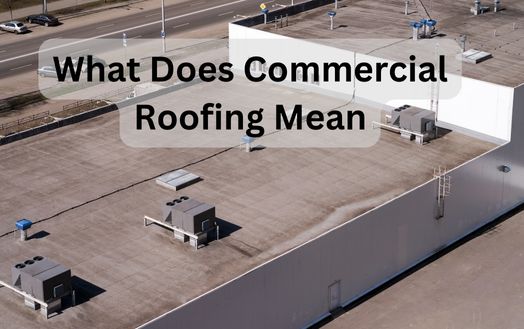
Commercial roofing is a crucial aspect of any commercial building, providing protection and durability against the harsh weather conditions and ensuring the longevity of the structure. Understanding the key aspects of commercial roofing, the differences between commercial and residential roofing, the common styles of commercial roofs, the various types of commercial roofing systems, and the significant aspects of commercial roofing are important for building owners, roofing contractors, and anyone involved in the commercial roofing industry. In this blog, we will delve deeper into the world of commercial roofing, what does commercial roofing mean, different styles, types of roofing systems, installation process, maintenance, and signs indicating the need for roof repairs or commercial roof replacement NJ.
What does commercial roofing mean? Commercial roofing refers to the process of designing, installing, and maintaining a roofing system specifically tailored for commercial buildings. Unlike residential roofing, which focuses primarily on aesthetics, commercial roofing emphasizes durability and long-term performance. Commercial roofs are designed to protect large, often flat, roofs of commercial properties, such as strip malls, industrial complexes, and low-rise commercial buildings. Commercial roofing contractors NJ specializing in commercial roofing play a vital role in ensuring the proper installation, maintenance, and repair of commercial roofs, taking into consideration the unique challenges of commercial properties.
A commercial roofing system consists of several key elements, including the roofing material, insulation, decking, and proper air flow systems. The installation process of commercial roofs involves strategic planning to ensure the roof can withstand the unique challenges of commercial properties, such as heavy foot traffic, industrial equipment, and weather conditions. Regular maintenance of the commercial roofing system, including inspections, clearing debris, and addressing early signs of damage, is crucial to prevent water damage, leaks, and the need for extensive repairs.
Commercial roofs are specifically designed to cater to the needs of commercial properties, such as industrial roofs, flat roofs, and low-sloped roofs. The roofing material used for commercial properties varies depending on the specific requirements, durability, and weather conditions. Unlike residential roofing, commercial roofing systems often utilize materials such as metal roofing, built-up roofing membrane, and thermoset or EPDM roofing. Industrial roofing properties often require specialized roofing systems to accommodate the unique needs of the facility, providing long-lasting protection against harsh weather conditions and potential water damage.
While both residential and commercial roofing involve the installation and maintenance of roofs, there are significant differences between the two. In residential roofing, the primary focus is often on the aesthetic appeal of the roof, while commercial roofing prioritizes durability, longevity, and performance. Residential roofing typically uses asphalt shingles, whereas commercial roofing encompasses a range of roofing materials, including metal roofs, membrane roofs, and built-up roofing systems. The installation process of commercial roofs also differs, requiring specialized knowledge and techniques that cater to the unique needs of commercial properties. Roofing contractors specializing in residential or commercial roofing play a crucial role in ensuring the proper installation, maintenance, and repairs of roofs in their respective sectors.
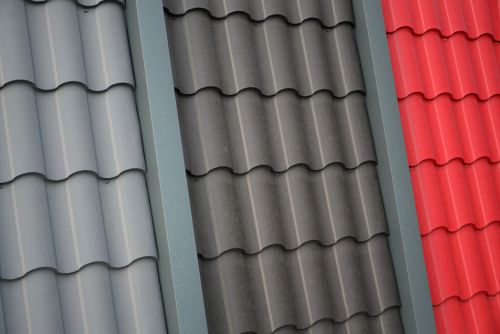
Various styles of roofs are commonly used in commercial buildings, each offering unique advantages depending on the building’s design, functionality, and aesthetic appeal. The most common styles of commercial roofs include flat roofs, low-sloped roofs, and pitched roofs. Flat roofs, often seen in strip malls and low-rise commercial buildings, are cost-effective, easy to maintain, and provide additional space for equipment, solar panels, or green roof installations. Low-sloped roofs, prevalent in industrial and commercial buildings, offer efficient water drainage and the installation of HVAC systems. Pitched roofs, while less common in commercial properties, add architectural appeal and enhanced water runoff capabilities.
Flat roofs are a popular choice for commercial buildings due to their cost-effectiveness, ease of maintenance, and flexibility. These roofs are characterized by their low slope, providing a practical solution for commercial properties where a flat roofing system is preferred. The installation process of flat roofs typically consists of multiple layers, including a roof membrane, insulation materials, and protective coatings. Proper insulation is crucial in flat roofs to regulate temperature, prevent moisture buildup, and protect the building from UV rays, ultimately extending the life of the roof and ensuring the comfort of the commercial building occupants.
Low-sloped roofs, also known as low-pitched roofs, are commonly found in commercial properties, offering efficient water drainage and proper insulation. These roofs are specifically designed to manage water flow and prevent water damage, ensuring the longevity of the roofing system. Various types of roofing materials, such as membrane roofing systems, are commonly used for low-sloped roofs, providing durability and protection against weather conditions. Regular maintenance of low-sloped roofs, including inspection, cleaning, and addressing any damage promptly, is essential to prevent water pooling, leakage, and potential damage to the roofing system.
Pitched roofs, although less common in commercial properties, offer architectural appeal and enhanced water runoff capabilities, making them suitable for specific commercial building designs. The installation process of pitched roofs involves the use of various roofing materials, including asphalt shingles, metal roofing, or slate, depending on the desired aesthetic and performance. While more commonly seen in residential homes, pitched roofs can be found in certain industrial buildings that require a unique architectural design. Proper maintenance, including regular inspections, cleaning, and addressing any roofing issues, is crucial for the longevity and performance of pitched roofs in commercial properties.
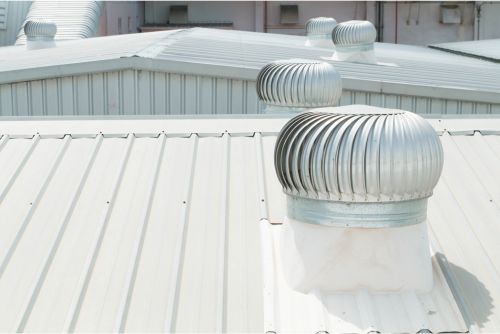
Commercial roofing systems encompass a wide range of types, each offering unique advantages and tailored to the specific requirements of commercial properties. Metal roofing systems, such as steel, aluminum, or copper, provide durability, resistance to harsh weather conditions, and a long life expectancy. Built-up roofing membrane systems, consisting of multiple layers of bitumen and gravel, offer superior durability, insulation properties, and weather resistance. Thermoset, commonly known as EPDM roofs, are highly resistant to weather conditions, UV rays, and are low slope applications suitable for commercial buildings. Choosing the right roofing system depends on factors such as weather conditions, building design, and project budget, making the expertise of roofing contractors essential in the selection process.
Metal roofing is a popular choice for commercial properties due to its durability, resistance to harsh weather conditions, and long life expectancy. Metal roofs, available in materials such as steel, aluminum, and copper, offer superior protection against elements such as rain, wind, snow, and UV rays. These roofs require minimal maintenance, provide excellent insulation properties, and can be customized to the building’s design, making them an attractive choice for commercial building owners. Metal roofing systems, when properly installed by professional roofing contractors, offer long-term cost savings, sustainability, and durability for commercial properties.
Built-up roofing membrane (BUR) system, also known as tar and gravel roofing, is a popular choice for commercial properties due to its durability, weather resistance, and long life expectancy. BUR roofs consist of multiple layers of bitumen, asphalt, or tar, alternating with gravel, creating a robust and waterproof roofing system. The installation process of BUR roofs involves the strategic application of these layers, ensuring proper insulation, weatherproofing, and extended roof life. These roofing systems are commonly found in commercial properties, including industrial complexes, providing long-lasting protection against the elements and harsh weather conditions.
Thermoset roofing, popularly known as EPDM (ethylene propylene diene terpolymer) roofs, offers excellent durability, weather resistance, and long-term performance. EPDM roofs are highly resistant to weather conditions, including extreme temperatures, UV rays, and ozone exposure, making them ideal for commercial properties. These roofs have a life expectancy of 20 to 30 years, providing long-term protection and cost savings. The installation process of EPDM roofs involves the use of large, seamless sheets, resulting in reduced seams and potential leak points. Proper insulation and regular maintenance can significantly extend the life expectancy of EPDM roofs, ensuring the long-term performance of commercial roofing systems.
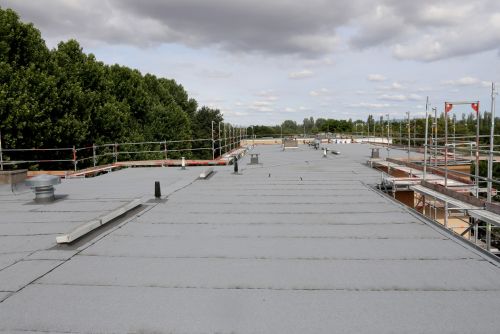
When it comes to commercial roofing, paying attention to significant aspects such as the installation process, regular maintenance, and proper care are essential for the longevity and performance of the roofing system. The installation process of commercial roofs requires the expertise of professional roofing contractors who understand the specific requirements of commercial properties. Regular maintenance, including inspections, cleaning, and addressing any issues promptly, is crucial to prevent water damage, commercial leak repair NJ, and the need for extensive repairs. Proper maintenance of the commercial roofing system ensures its durability, energy efficiency, and cost-effectiveness throughout the lifespan of the roof.
The installation process of commercial roofs involves several crucial steps to ensure proper insulation, air flow systems, and decking. Professional roofing contractors develop strategic plans, considering the unique needs of commercial properties, weather conditions, and building design. The installation process may include the use of polyurethane foam, roof membranes, insulation materials, and proper ventilation systems. It is essential for commercial building owners to hire experienced roofing contractors who specialize in commercial roof installation, ensuring the proper installation, safety, and long-term performance of the roofing system.
Regular roof inspection is an essential aspect of commercial roofing maintenance, as it helps identify early signs of damage, wear, or potential roofing issues. Roof inspections play a crucial role in detecting water damage, insulation problems, moisture accumulation, and the condition of roofing materials. Regular roof inspections can prevent costly repairs, extend the life of the roof, and ensure the safety and comfort of the building occupants. Professional roofers conduct thorough inspections of commercial roofing systems, providing valuable insights and recommendations for maintenance, repairs, or potential roof replacement, contributing to the long-term durability of the roofing system.
Regular maintenance is necessary to ensure the proper care of commercial roofs, minimize damage, and extend the life expectancy of the roofing system. Maintenance requirements for commercial roofs include regular inspection, cleaning of debris, addressing roof leaks, and maintaining proper insulation. Different types of commercial roofing, such as asphalt shingles, membrane roofs, gravel roofs, or slate roofs, have specific maintenance needs that professional roofing companies can efficiently handle. Hiring a commercial roofing company NJ specializing in commercial roofing maintenance ensures the proper care, safety, and long-term durability of the commercial roofing system.
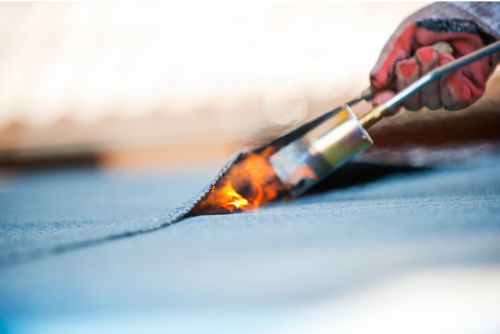
Identifying the need for roof repairs or replacement is crucial to prevent further damage, potential leaks, or water damage to the commercial building. Signs indicating the need for roof repairs include water stains, sagging areas, damaged shingles, roof leaks, and debris accumulation. If the damage is extensive and the roof has reached the end of its life expectancy, roof replacement may be necessary. Professional roofing contractors assess the condition of the commercial roof, provide recommendations, and execute the required commercial roof repairs NJ or replacement to ensure the safety, durability, and longevity of the roof.
Early detection of signs of roof damage is crucial for timely roof repair, preventing further deterioration and potential water damage to the commercial building. Water stains on the ceiling, visible roof leaks, sagging areas, damaged shingles, or debris accumulation are common signs indicating the need for roof repair. If any of these signs are identified, it is essential to consult professional roofing contractors who can assess the extent of the damage, provide proper repairs, and prevent more significant issues down the line.
The decision to replace a commercial roof is based on various factors, including the age of the roof, extensive damage, frequent repairs, or when the roof has reached the end of its life expectancy. Professional roofing companies assess the condition of the commercial roof, considering factors such as roof materials, insulation, weather conditions, and building requirements, to determine the need for roof replacement. Regular maintenance, inspections, and addressing roofing issues promptly can extend the life expectancy of the commercial roofing system, delaying the need for a complete roof replacement.
In conclusion, understanding what does commercial roofing mean is essential for any business owner or property manager. It involves various key aspects, including the difference between commercial and residential roofing, the different styles of commercial roofs, and the various types of commercial roofing systems available. Proper installation, regular inspections, and maintenance are crucial to ensure the longevity and functionality of commercial roofs. It’s important to be aware of signs indicating the need for repairs or replacement and to take prompt action to avoid further damage or safety hazards. If you’re in need of commercial roofing services, don’t hesitate to reach out to our team of professionals for expert assistance.